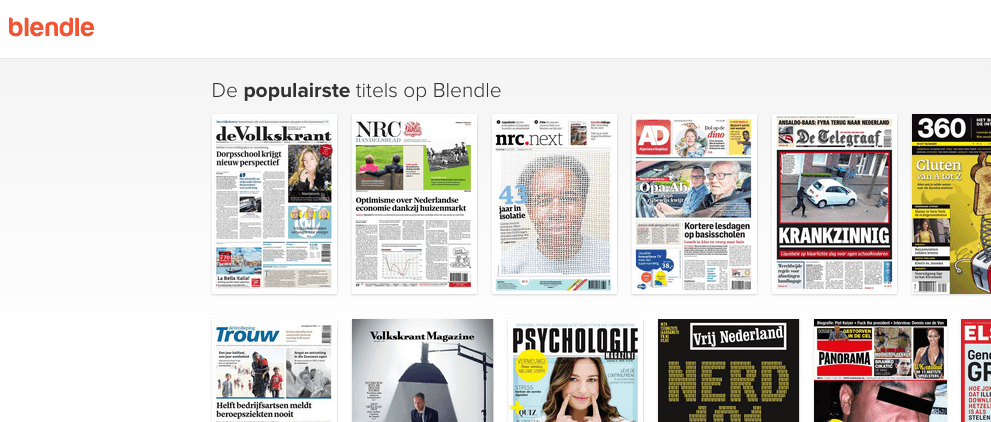Yesterday was an important day for Dutch startup Blendle, which offers a micro-payments platform that allows people to buy single articles from select (partner) newspapers and magazines: the company announced that it has signed up all the major German national newspapers to its service.
That means people no longer need to pay for a physical copy, subscribe or otherwise break through the paywall for many a Germany publication to read the one article they really want to take time for.
Blendle is often described as a 'Netflix' or 'Spotify' for journalism, but the reality is that its model resembles iTunes more than anything: Apple's platform really engrained the habit of people paying for individual music tracks rather than full albums when it launched more than 12 years ago.
I recently sat down with Alexander Klöpping, the outspoken but affable founder of Blendle (who I learned is somewhat of a celebrity in The Netherlands thanks to frequent television appearances), when I visited Amsterdam for a few days to dive into its tech startup ecosystem.
Klöpping talked about Blendle's model in more detail, explaining that publishers get to choose their own pricing for individual articles, and mostly come out at between 10 and 40 euro cents apiece.
The interesting twist is that people can demand a refund if the article they just consumed was not satisfactory for whatever reason (provided they share that reason). Asked if that was a regular occurrence, Klöpping said only 3 to 5 percent of articles are currently refunded.
Still, I was interested in learning more about why the option existed at all.
"We're doing micro-payments, and micro-payments to some extent are annoying," Klöpping said.
"It's choosing that you want to spend a small amount, and then you have to confirm ... it's annoying to some extent. So what we decided is that if we add the refund possibility, then you're basically shifting the buying 'decision moment' to when the reader is at the end of an article rather than at the beginning. And that seems to be working quite well."

At the time of the interview, Blendle had around 250,000 registered users - it's up to 300,000 today and the big move into Germany should propel those numbers even higher. Most of Blendle's users are quite young, Klöpping said, which means publishers can tap a whole new audience and a fresh demographic by putting its content on the startup's platform, while charging for it in a novel way.
Asked how Blendle solved the 'chicken and egg' problem at the start, Klöpping candidly said:
"This was hard. Getting publishers on board to do licensing deals like this is really, really, really hard. I spent more than a year talking to Dutch publishers, and it was a lot of work."
But when a big Dutch newspaper (NRC Handelsblad) finally signed up for the beta version back in 2013, the other ones quickly followed suit and Blendle enjoyed a ton of media attention when it finally launched with a bunch of publications on the platform, spurring rapid growth.
Blendle has also managed to sign up a few major international publications since then, including The Economist, The Washington Post, The Wall Street Journal and The New York Times. In fact, the latter's publisher even ended up investing in the Dutch upstart's relatively recent €3 million round, alongside German media giant Axel Springer (which likely also gave boost to its expansion in Deutschland).
Further international expansion is on the road map, Klöpping acknowledged during the interview, saying that securing new licensing deals with publishers is getting easier because Blendle now has more data, users and revenue projections to show off.
Which doesn't necessarily mean adding new countries to its offering is a walk in the park now.
"When we launch in a country, we want to have most of the big publishers on board there, because as a consumer you want to feel like there's a complete offering. You want to find the newspaper and magazine that you know, otherwise it fees like a crappy product," Klöpping added.
Don't expect Blendle to suddenly launch in multiple markets simultaneously, in other words, but rather tackle key (large) European markets one by one while making sure the product 'just works'.
Blendle currently has approximately 40 employees, about half which are developers.
Watch the interview if you also want to hear Klöpping's thoughts on the Amsterdam startup scene (both the good and the bad).



Would you like to write the first comment?
Login to post comments